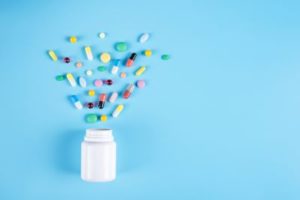
All anti-depressant medications currently on the market have been tested in such clinical trials—and, individually, have been shown to be more effective than the placebo. But, many of these trials don’t take into account what is known as the placebo effect.
The placebo effect, simply defined, is condition improvement or a beneficial effect from a placebo that can’t be attributed to some property of that treatment. And the placebo effect can be quite powerful—even in neuropsychiatric conditions like depression.
In fact, in 2008, a prolific placebo researcher, Irving Kirsch, now at Harvard Medical School, published a study suggesting that anti-depressant medications, across a variety of studies, may not be more effective than placebo. His work suggested that much of the relief depressed patienhttps://programinplacebostudies.org/about/people/irving-kirsch/ts find when they take a medication may be actually due to the placebo effect itself—especially in less severely depressed individuals. And this research has led many to wonder what, exactly, the placebo effect may be doing in the brain to help reduce depression symptoms.
Jon-Kar Zubieta, a psychiatrist at the University of Utah, has used brain imaging studies to take a closer look at what might be occurring. He learned that the placebo effect triggers a special system in the brain called the opioid system. This system has long been known to help control pain and emotion.
“This is a general system involved with the regulation of stress and emotion. We’ve long known it’s a system that is compromised in depression,” says Zubieta. “And when we introduced placebos to individuals in the brain scanner, we saw some people were able to release more natural chemicals in this system in response to the placebo. They also happened to be the ones who improved the most after being given an anti-depressant.”
Does this mean anti-depressant medications don’t work? No, says Zubieta. Rather, he believes, the placebo effect and medication are working in concert to help with depressive symptoms, especially in those with less severe forms of depression.
“Individuals who are less ill, who have less severe depression, likely have less dysregulated brain function in this system. So they are going to respond better to the placebo. They will also respond to the drug but the difference between the two may be too small to detect,” he says. “Those with more severe depression, and more dysregulated systems, will need more than placebo to get better.”
“But this study is really a study that shows that the human brain has these really effective resiliency mechanisms that can help someone recover from depression and it’s possible that we can tap into these mechanisms in different ways, using different techniques and treatments, to help depressed patients recover,” Zubieta adds. “There is something about the force of the interaction in treatment, that interaction between the patient and the clinician, that has the power to really make a significant difference.”
The information on this website is provided as a general information resource only, and is not a substitute for professional medical advice, diagnosis, or treatment from a qualified healthcare provider. Always seek the advice of your physician or qualified healthcare provider with any questions you may have regarding a medical condition. The information on this website is provided “as is”. Assurex Health makes no representations or warranties, express or implied, regarding the information on this website.
Our articles are for informational purposes only and are reviewed by our Medical Information team, which includes PharmDs, MDs, and PhDs. Do not make any changes to your current medications or dosing without consulting your healthcare provider.
The GeneSight test must be ordered by and used only in consultation with a healthcare provider who can prescribe medications. As with all genetic tests, the GeneSight test results have limitations and do not constitute medical advice. The test results are designed to be just one part of a larger, complete patient assessment, which would include proper diagnosis and consideration of your medical history, other medications you may be taking, your family history, and other factors.
If you are a healthcare provider and interested in learning more about the GeneSight test, please contact us at 855.891.9415. If you are a patient, please talk with your doctor to see if the GeneSight test may be helpful.




